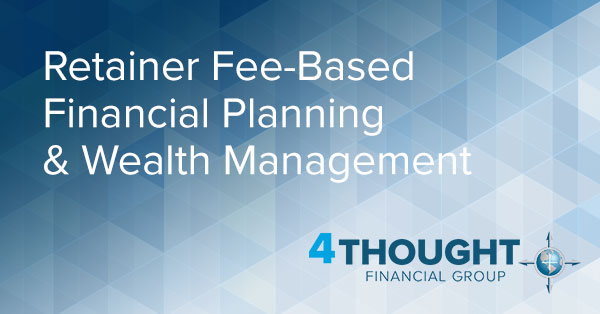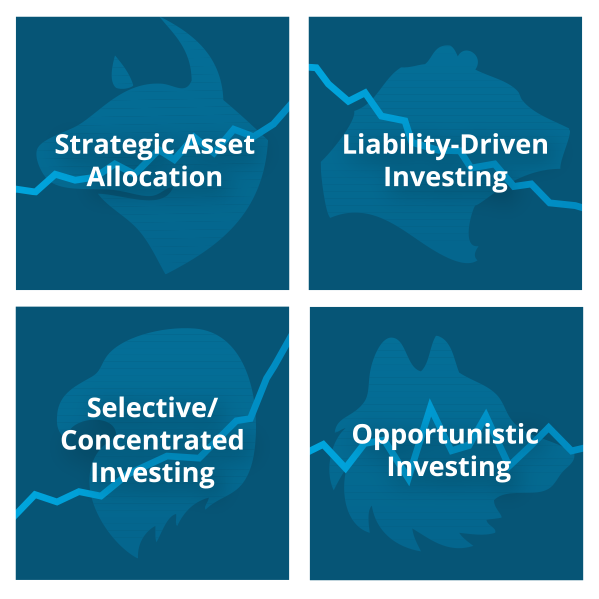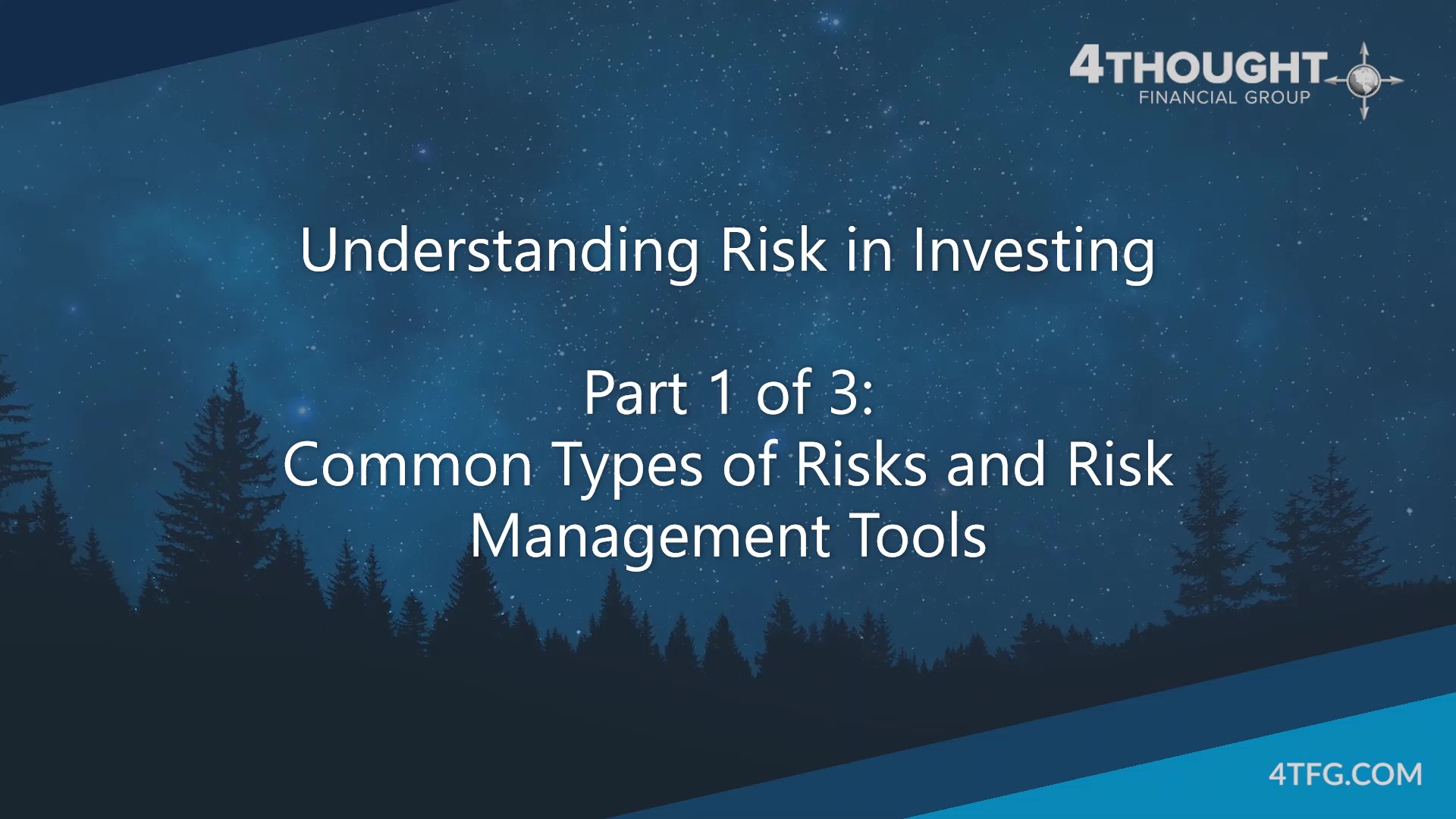
Recent, sweeping tax reform. Uncertainty about the U.S. Department of Labor’s recently enacted—(Or was it?)—Fiduciary Rule. The current turbulence defining the stock market, and ever-evolving capabilities of automation.
The financial planning and wealth management industry is currently weathering a sea change of seismic shifts in policy, technology, consumer behavior and fundamental principles that will have short- and long-term ramifications on the role and responsibilities of the modern-day advisor, as well as significant implications for how and where individual consumers seek personal finance advice.
If you’re the latter, whom you hire to guide you through these uncharted waters may make all the difference in whether you successfully achieve your financial goals and objectives. If you’re an advisor, which firm you choose to partner with could be the determining factor between a long and prosperous career, or an early retirement yourself.
The retainer fee-based financial planning and wealth management pricing structure may possess substantially greater advantages for both the advisor and investor in navigating these latest and still-manifesting permutations, and ultimately reaching safe shores.
Let’s start with the basics.
What Is Retainer Fee-Based Financial Planning?
Retainer fee-based financial planning, as opposed to a commission-based model, assets-under-management fee, or one-time financial planning fee, is a pricing structure characterized by ongoing fixed fees as the primary (or sole) compensation for the provided advisory services. These may be charged monthly, quarterly or annually (indefinitely) and are typically based on the complexity level of the planning rendered. This planning is most often differentiated and separate from plan implementation services like investment portfolio management or insurance services, and may include the coordination of areas as diverse as a client’s estate planning, business-related planning, employer/employee benefits, and investment planning.
Similar to those of attorneys or accountants, such retainer fees do not guarantee a specific outcome, but rather ensure the commitment of the advisor and/or advisory firm to work in their clients’ best interests on an ongoing basis to ensure the achievement of their financial objectives.
For these and many other reasons, retainer fee-based financial planning is gaining in popularity over other more commonly utilized, traditional pricing structures, and holds several significant benefits for both advisors and clients alike.
What Are The Benefits Of Retainer Fee-Based Financial Planning?
The retainer fee-based financial planning model possesses several advantages for individual advisors and the clients they represent.
1. Reduces or Even Eliminates Conflicts of InterestPerhaps most profoundly, one of the major benefits of choosing a retainer-fee advisor and/or advisory firm is the reduction or elimination of inherent conflicts of interest that permeate other pricing structures, such as the commission-based approach. Commission-dependent “investment advisors” or “financial planners”—really, in practice, salespeople—are generally compensated through the sale of associated financial products they contend are needed to fulfill their clients’ goals. These paid transactions may include the buying and selling of products like stocks, insurance, and mutual funds, among others.
Thus, commission-based advisors personally earn more the more financial products they sell you. Consequently, it is conceivable that in some situations their advice may not always be in the client’s best interest, nor their decisions and actions inspired by what would be in the best service of achieving clients’ objectives—but rather, their own. Additional conflicts can also arise if the advisor’s employer requires them to suggest their own products for purchase rather than others more suited to meet clients’ targets.
The retainer fee-based financial planning model reduces or even eradicates these conflicts, and by design, is intended to serve as a more objective source of advice for clients, since the relationship is untainted by incentivized counsel pegged to sales or transactions. Pure retainer fee advisors that do not also receive ancillary compensation from plan implementation are almost totally free from such constraints, ulterior motives, and temptations, while those that are retainer fee-based and also receive ancillary income from implementation may provide the benefits of reduced conflicts of interest (although not completely eliminated) while retaining the ability to directly aid or control the implementation of a financial plan.
Such conflicts of interest also put those traditional commission-based salespeople who may call themselves financial planners or investment advisors on a collision course with the U.S. Department of Labor’s Fiduciary Rule. (More on that in a minute.)
2. Better Alignment Of Incentives With Clients’ Financial Objectives
Whether it’s the recently enacted federal Tax Cuts and Jobs Act reform, the ever-growing trend toward automation, the volatility that defines the stock market, or the U.S. Department of Labor’s new Fiduciary Rule, there are a host of sweeping—and perhaps to some, confusing and even terrifying—changes rippling throughout the financial industry that will have long-term implications for consumers and advisors alike.
The retainer fee-based financial planning model may be simply better equipped to help navigate these uncharted waters.
“How? Why?!” you might ask.
For an abundance of reasons, including to no small degree the aforementioned riddance of many of the substantial conflicts of interest ingrained within the framework of the commission-based model. Perhaps most significantly, however, is that the retainer fee-based pricing structure facilitates a better alignment of investors’ financial goals with the capabilities of advisors and advisory firms who’ve adopted it.
Several core components integral to this alignment include:
- A Very Different Set of Services
Experienced financial planners know that to truly serve their clients, mapping out their objectives is mission-critical. Without knowing where they want to end up, it’s impossible to guide them along the path that will eventually lead them to those goals. That’s why taking the time to go in depth with the client to both conceptually and quantitatively map out their lifetime financial targets is step one. But importantly, truly comprehensive financial planning coordinates a clients’ estate planning, business succession planning (for business owners), employer/employee benefits, as well as investment planning—all of which are elements for which a commission-based advisor is not directly compensated and thus has little or no incentive to directly address. Retainer fee-based planning will address areas of a client’s financial life in great depth that would never be touched by a traditional insurance salesman or stockbroker.
- Ongoing Services & Responsive Adaptability
The retainer fee-based structure provides comprehensive, ongoing advisory services—including regular consultation, continuous access and availability. This is vital to a successful partnership, and enables financial planners to quickly and effectively adapt to unpredictable shifts, whether in the market, or in clients’ lives and pursuits. It also enables advisors to address clients’ concerns, person-to-person, expeditiously, whenever they need answers.
When it comes to the investment planning portion of an overall financial plan, the crests and crushing valleys that define the stock market underscore the extraordinary value of partnering with a retainer fee-based financial planning firm, simply from the knowledge its team derives from maintaining an open and sustained channel of communication with their clients, and, having already created the aforementioned “fiscal roadmap,” plotted or at least conceptualized their ideal financial trajectory. They are therefore typically much more up to date on a client’s situation, and therefore better equipped to respond to changes in the market as they relate to the client’s life in a manner on par with navigating that turbulence toward a safe harbor than someone who may not have contacted the client since the last time they were able to make a commissioned sale.
It’s times such as these whereto the accessibility and availability of such a team becomes invaluable—again, at the bare minimum, to know there is an experienced, trusted captain and crew at the helm, steering the ship to safe harbor.
- Fiduciary Responsibility
There’s still a lot of confusion and uncertainty surrounding the Department of Labor (DOL)’s new Fiduciary Rule, but make no mistake: Advisors are taking substantial risks if they’re not in compliance. Partnering with a retainer fee-based financial planning team that has adopted and adheres to these new mandates can make a world of difference for advisors and the clients they represent.
Doing so in part shifts this burden off their shoulders—in other words, they’re chosen the right model. It provides less likelihood of regulatory risk. Perhaps most importantly, it helps provide peace of mind to both advisors and clients. Enlisting the help of financial planners who are actually monetarily incentivized to be “fiduciaries”—not salespeople—provides greater assurance that they have clients’ best interests in mind – regardless of what the regulations mandate.
Essentially, this is exactly what the DOL’s new rule is supposedly designed to address.
The new Fiduciary Rule expands the definition of a fiduciary as stipulated in the Employee Retirement Income Security Act of 1974, or ERISA, for short, and in a nutshell, now covers those very same people who’ve been recommending which financial products to buy or sell, widening the fiduciary umbrella to encompass individual retirement accounts, or IRAs.
Soon—the Trump administration has postponed the new rule’s enactment until at least January 2019—anyone purporting to act in their clients’ best interest must actually do so. But whether or not the Fiduciary Rule gets fully enacted as planned, the “cat is out of the bag” so to speak. These issues are now in the public consciousness, so they’re unlikely to go away for advisors.
Think about it. Retainer fee-based financial planners—which are regulated as “Registered Investment Advisers” (RIAs)—have already largely avoided many major conflicts of interest, simply by the intrinsic nature of their pricing structure. Thus, they not only have a legal obligation, but a much greater incentive, too, to act in clients’ best interests than those who still (for now) earn their compensation through commissions and how many financial products they unload.
For Financial Advisors
Perhaps you’re an agent at an insurance company. Perhaps you’ve worn or still wear a stockbroker’s hat. Maybe you’re an investment advisory specialist who wraps your financial planning services into your asset-based fee.
News Alert: Retainer Fee-Based Financial Planning Is In. Protect Your Business & Your Clients. Switch Today.
Besides alleviating conflicts of interest, providing increased protection from the new requirements of the U.S. Department of Labor’s Fiduciary Rule, and greater flexibility in addressing client’s true financial needs, partnering with a retainer fee-based financial planning and wealth management firm could also provide potential future job security for those in the business of furnishing personal finance advice.
That’s because—wait for it…
Automation—in the form of so-called “robo advisors” and related inexpensive digital planning advice software—the complex integrations of investment portfolio management, financial planning, technology, and personal finance—pose a very real threat to certain elements of this once human-dominated profession.
The robots are coming, and they’re taking over—kind of.
How Does Automation Work? What Does It Do? When it comes to the finance industry, you name it.
Automation services can aggregate all the financial data from all of a client’s collective accounts, for instance, to generate digitalized balance sheets and personal cash flow statements, to analyze exactly how much a client is earning, spending, saving, and more.
Similar integrations allow advisors and clients to plug information in to help create customized computer-generated projections incorporating everything from projected inflation figures and future Social Security earnings to investment returns, and a whole lot more!
Such acute detailing of clients’ financial coming and goings provides actual behavior patterns that some firms are monitoring and analyzing using algorithmic processes to make probable forecasts and predictions, in an effort to provide ever-more meaningful advice.
Such simple automated advice includes identifying investment vehicles such as low-fee and tax-advantaged accounts, weighing in on where clients can save for retirement, and flagging annual contribution limit variables.
Just as the retainer fee-based financial planning model rectifies many significant conflicts of interest, so can automation—parsing unbiased advice derived specifically from cold, hard data. Perhaps most astonishingly (maybe less so nowadays) is that all this is replete with the constant accessibility and convenience of a smartphone.
But all of the potential benefits of this technology can only truly be realized with the guidance of well-informed human fiduciary advisors with the capabilities to knowledgably enter, manipulate, and interpret the hard data that gets crunched by these software programs.
Consequently, teaming up with an experienced retainer fee-based financial planning and wealth management firm already well-versed in robo-advisory services and other service-augmenting technologies (not to mention a long history of executing fiduciary responsibilities), can mean security—for you, your business, and your clients’ financial futures.
4Thought Financial Group
Syosset, NY-based firm 4Thought Financial Group specializes in helping end-user wealth management clients and their financial advisors achieve financial goals. It is a proponent of retainer fee-based fiduciary advice, and a Registered Investment Adviser (RIA) that has had clients’ best interests in mind long before the labor department’s latest ruling.
4Thought Financial Group advocates for wealth management services with a low, ongoing retainer fee with No Contractual Term Commitment as opposed to a high, one-time fee—which proves the advisor’s commitment to sustained guidance toward meeting client objectives.
Contact 4Thought Financial Group Today, And Let’s Begin Building Your Wealth, Together






Leave a Comment